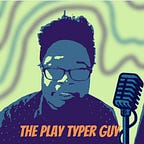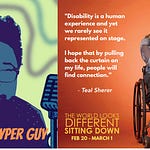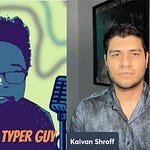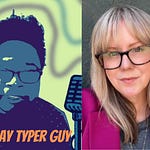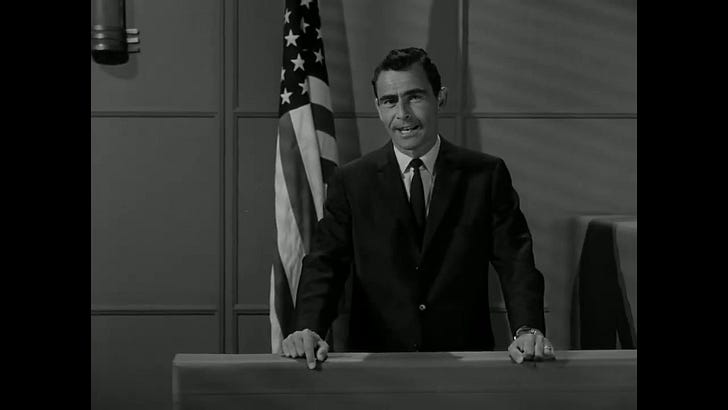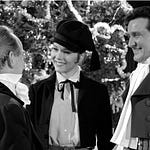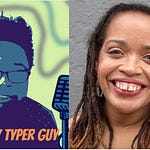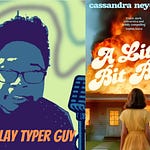Democrat Ruwa Romman made history in 2022 as the first known Muslim woman elected to the Georgia House of Representatives. The granddaughter of Palestinian refugees, she’s also the first Palestinian-American elected to any office in the state.
Rep. Romman, 31, was born in Jordan, and her family moved to Georgia when she was seven. She attended Oglethorpe University and received her master’s in public policy at Georgetown’s McCourt School. She’s been an active community organizer in Georgia and has volunteered in every election cycle since 2014. She currently represents House District 97, which is “northeast-ish of Atlanta.”
I had the opportunity to speak with Rep. Romman about the upcoming election and the Israel-Hamas war in Gaza. You can download the podcast version above to listen to on your commute or at the gym. You can also watch the YouTube video below, but keep your eyes on the road!
Transcribed excerpts from our conversation:
SER: The story of how you got into office is very cinematic … I find it quite charming.
REP. ROMMAN: Thank you. It’s so funny you call it charming because there are some very crazy conspiracy theorists that will say that I'm just faking this story, but the reality is that I am up for reelection for the first time. I got elected in 2022.
I have been doing civic engagement work in Georgia for coming on 10 years now. My main passion, my main sort of focus when it comes to politics is I want to teach people and as many people as humanly possible how to do this work.
I see the folks who are in the hallways of the Capitol. I meet with them all the time. I wish that I got to meet with just my constituents, frankly, a lot more. I wish that I could hear from them a lot more.
So the long story short of it is that one of the organizations that I loved volunteering for had held a candidate training. The executive director, who’s also a friend of mine, had asked me if I would attend … and it was on Zoom. This was during COVID, and she said, “We would love your feedback to make sure we have not missed anything.”
There was a reporter there who was doing a story about the importance of women and particularly minority women to run for office. We did the interview. I actually remember her asking me, “Are you interested in running for office?” I said I’ve been gone for about a few years … three years because I was doing my master’s in public policy in DC. My husband and I just moved back. So I don’t even know where I am on the map because they had just redrawn the maps again. This was post-census. It wasn't even on my radar that I would. This was 2021. On my radar was that I would run a marathon in 2022 and support candidates up and down the ballot for 2026 because we had the governor’s race and the Senate race that year. And I don’t hear from her for a few months. Then December 23rd, 2021 — this is my husband’s and my anniversary — my phone starts to go off.
It turns out the article was released and the first sentence was something along the lines of “Ruwa Romman is considering or weighing a run for office” or something like that. People were calling me excited. They [said], “We know who you are. You’ve been doing this work for a long time. What can I do to help?”
I remember telling them: I run campaigns like the back of my hand. I don't know how to fundraise to save my life. I don’t want to run for office. It kind of felt like they colluded a little bit because for a few days, I just kept getting calls from people every day [who said], “You should do this.”
Somebody looked up my address and found out that I’m in a new open blue seat. I had somebody who — and I love him, he’s like an uncle, a second dad to me, he’s known me since I was a kid — [told me], “I do a lot of fundraising for nonprofits. Just say yes, and I will make sure that you will be OK.”
And so 15 days later, we launched my campaign, won the primary, won the general, made history as the first Muslim woman elected to the Georgia State House and first Palestinian elected in the state and actually most of the Southeast.
My brother, Sam Rasoul — I call him my brother, but we’re not actually related — is the other Palestinian elected and he is in Virginia. It’s basically us in the region right now.
Growing up Palestinian in Georgia
SER: This is a pretty intense time for someone of your background. Not that it was always candy and ice cream, but can you speak to what it was like, coming to Georgia as an immigrant and growing up in the state as it was changing and eventually running for office?
REP. ROMMAN: When I think about my identity and how I got here, I always remind people that both sets of my grandparents were born in Palestine. That was all they knew. They were forcibly and violently exiled from their homes.
In fact, three of my four grandparents have now passed away without ever seeing their homes again. So personally for me, even before politics, before everything, that was the first piece of my identity that I became very, very aware of, if that makes sense.
I also felt a responsibility. It was funny because my parents were always worried about us being Palestinian kids, especially in Forsyth. I remember my dad would [say], “Don’t tell people you’re Palestinian,” and of course, when my parents tell me not to do something, I immediately do it. So one day we were in [driver’s ed] class and somebody had asked, “Oh, I heard you’re Palestinian.” I said yes, and the teacher had overheard. He pulled me out in the hallway, and I was 16 or 17 at the time. [SER: This would’ve been 2009/2010.]
He proceeded to interrogate me because he wanted to make sure I didn’t have any ties to the terrorist group Hamas. That was his phrasing. He [said], “Just got to make sure y'all are good.” I remember literally laughing because I thought it was a joke. It was so absurd, but it really colored me [and] how I approached the world because it forced me to recognize a few things: One, how unjust the world is and how unjust we can be to each other. But also, too, that we can never stop trying to bring justice for everybody. The reality is that it forced me to look around a room every time I was in a room and ask myself, “Who is not here?”
Lessons from her grandfather
REP. ROMMAN: I tell people all the time that my grandfather taught us a few things. One of the most fundamental is that there is no homeland and there is no holy land without the Jews, the Christians, the Muslims and the Druze, right?
That was the world he grew up in. If you talk to Palestinians of that generation universally — truly universally — I remember I got to go for two weeks in 2019 and every person I spoke to from his generation, it was almost like you were watching a tape rerun over and over and over again but my grandfather's never met some of those people. It didn't matter if I was talking to a Christian person or a Muslim person they all said the same thing. Of course, it's not a utopia, to be clear when people are in the majority they can be not great but at the same time the experience that my grandfather instilled in us and the policies were that this is meant to be a land for everybody.
I remember the one thing that he one time said to me. He said, “I didn’t even think about the soldier’s faith who kicked me out of my home.” That was never a thing that crossed his mind. What crossed his mind was “Why is this happening to me? Why are you doing this to me? And am I ever going to get to come back?” And unfortunately the answer for him was no.
I hope you’ll consider becoming a paid subscriber for $80 a year or just $8 a month, if you’re not already. This helps sustain the newsletter and keeps all the content free for everyone.


